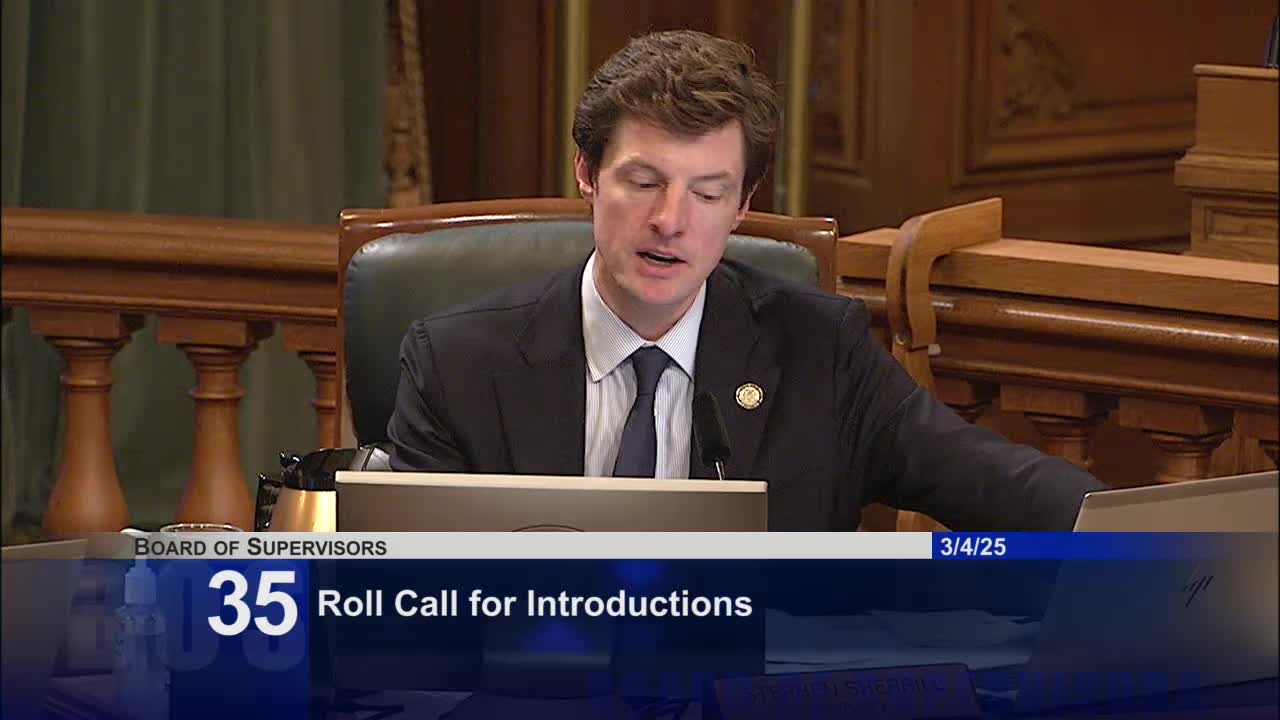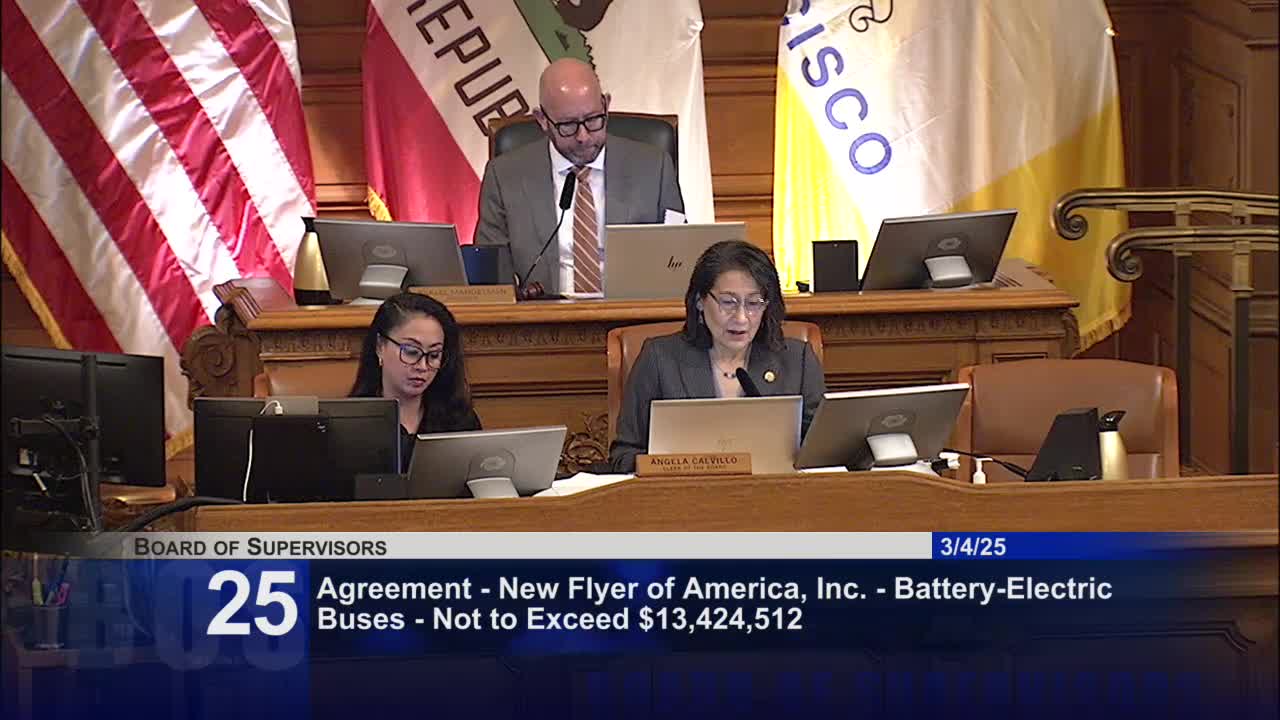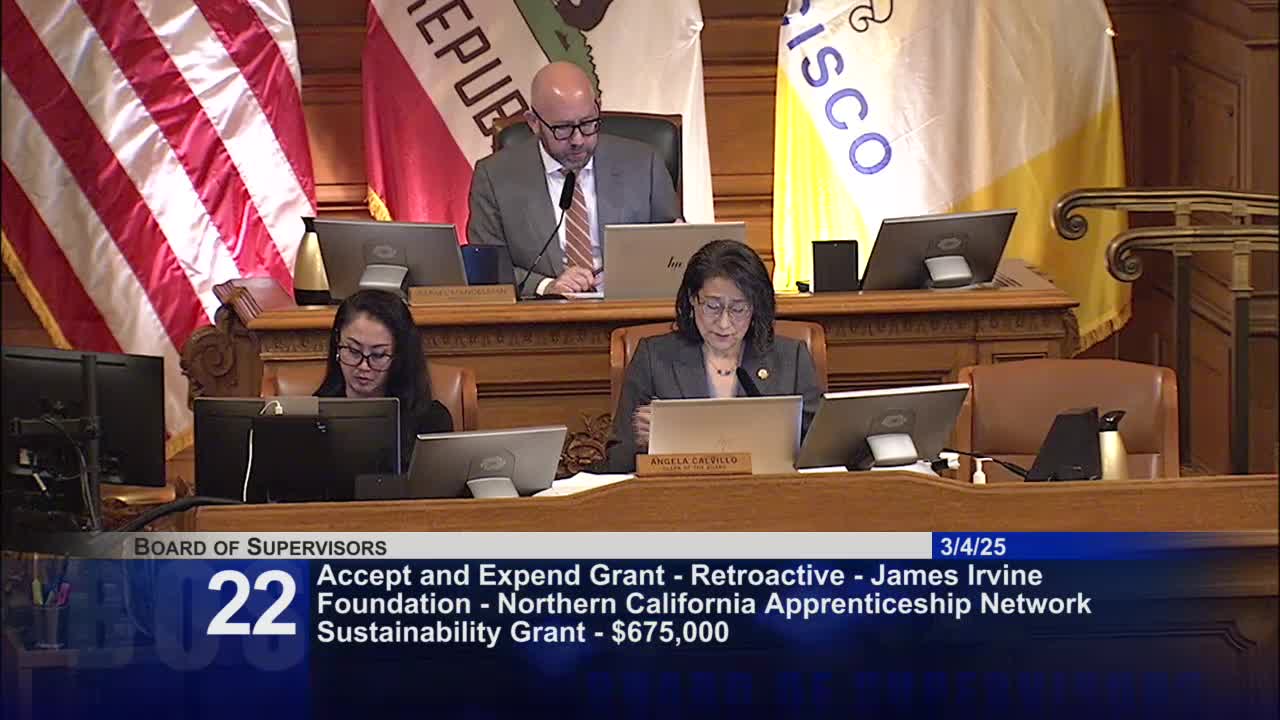Article not found
This article is no longer available. But don't worry—we've gathered other articles that discuss the same topic.

Supervisor Fielder calls hearing on 'four pillars' drug strategy; Supervisor Dorsey seeks waste‑water drug testing analysis

Supervisors raise performance concerns but approve extension of Brilliant Corners housing services contract

